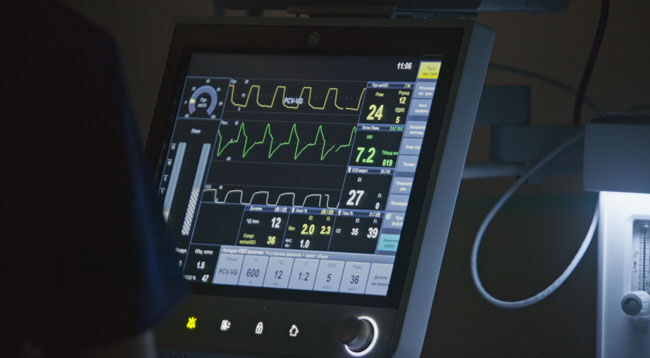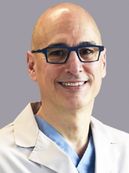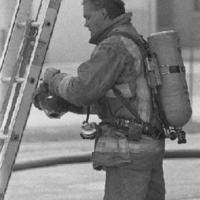Surgeon Q&A: Restarting the Heart After Cardiac Surgery
Written By: Adam Pick, Patient Advocate, Author & Website Founder
Medical Expert: Marc Gerdisch, MD, Chief of Cardiac Surgery, Franciscan Health
Published: December 5, 2023
I just received an important question from Nupur about restarting the heart after cardiac surgery and the progression of heart valve disease. Nupur wrote to me, “Hi Adam, I’ve been postponing my mitral valve repair surgery for a number of years. Now my left atrium is enlarged and I’m experiencing symptoms. I am paralyzed by the fear that my heart will not restart. How often does this happen? What do doctors do if the heart does not restart?”
To answer Nupur’s question, I was very lucky to connect with Dr. Marc Gerdisch, the Chief of Cardiac Surgery at Franciscan Health in Indianapolis, Indiana. During his career, Dr. Gerdisch has performed over 4,000 heart valve operations. In our community, Dr. Gerdisch has successfully treated over 125 patients including Justin Reddick and Janet Peterson.
Key Insights About Restarting the Heart After Cardiac Surgery
- Patient fear that the heart will not restart is common among patients. “It’s a perfectly legitimate question, because you’re going to have your heart stopped to have heart surgery,” states Dr. Gerdisch. “We think about all the fears that people have. They have fears of discomfort, of lack of recovery, of not being well, of a protracted stay in the hospital, and of their heart not starting.”
- According to Dr. Gerdisch, the heart always restarts. However, there are two potential issues that can impact normal heart function after being restarted including electrical events and the mechanical squeeze of the heart.

- To ensure normal electrical function after the heart restarts, electrodes are placed on the surface of the heart prior to surgery. “We put little electrodes on the surface of the heart. Essentially everybody gets them and they are on the surface of the heart from the time you’re in the operating room till shortly after being in the operating room, while you’re in the hospital,” Dr. Gerdisch states. “Those little electrodes allow us to tell the heart when to beat. It will always start. The electrical event can be given or it will happen on its own. 99% of the time it happens on its own. We have those leads for those events where we can’t get the heart to deliver that signal.”
- Several techniques and processes have been developed to preserve the mechanical squeeze of the heart. “We’ve developed multiple methodologies for ensuring that mechanically the hearts are well preserved and that they function well, that the squeeze is good after the operation,” states Dr. Gerdisch.
- For patients, like Nupur, who have severe heart valve disease and are symptomatic, Dr. Gerdisch believes the risk of not having surgery outweighs the risk of surgery. “Now, let’s compare those risks. In your case compare to what you’re talking about, because when we look at mitral valve repair the risk for an otherwise healthy person is so low that it’s almost stunning. I think you really need to be familiar with that. Recognize that, as you said, your disease is progressing, your left atrium is enlarged, you’re having symptoms. This is time to have the valve repaired,” states Dr. Gerdisch.
Many Thanks to Dr. Gerdisch & Franciscan Health!
On behalf of our entire patient community, many thanks to Dr. Gerdisch for sharing his clinical experience and research with our community! Also, many thanks to the Franciscan Health team for taking such great care of heart valve patients.
Related links:
- See 100+ Patient Testimonials for Dr. Marc Gerdisch
- New Approach to Pain Management After Heart Surgery
Keep on tickin!
Adam
P.S. For the hearing impaired members of our community, I have provided a written transcript of my video interview with Dr. Gerdisch below.
Video Transcript:
Adam Pick: Hi everybody, it’s Adam with heartvalvesurgery.com, and we are in Austin, Texas at the Enhanced Recovery After Cardiac Surgery Society meeting. I’m thrilled to be joined by Dr. Marc Gerdisch, who’s the Chief of Cardiac Surgery at Franciscan Health in Indianapolis, Indiana. Dr. Gerdisch, it is great to see you again.
Dr. Gerdisch: Always a pleasure. Thanks Adam. Great to have you here at this meeting.
Adam Pick: Yeah, we’re learning lots and at the same time I’m getting questions from patients. This question, Dr. Gerdisch, comes in from Nupur and she asks, hi Adam, I’ve been postponing my mitral valve repair for a number of years. Now my left atrium is enlarged and I’m experiencing symptoms. I am paralyzed by the fear that my heart will not restart. How often does this happen? What do doctors do if the heart does not restart?
Dr. Gerdisch: It’s a perfectly legitimate question, because you’re going to have your heart stopped to have heart surgery. When we think about where we are right now, which is in the Enhanced Recovery meeting, we think about all the fears that people have. They have fears of discomfort, of lack of recovery, of not being well, of a protracted stay in the hospital, of their heart not starting. I’m going to say that this is a fairly simple one because it always restarts. If the heart doesn’t — there are two ways that the heart can be impaired. One is the mechanical squeeze, the muscle squeezing, and then one might think of that not starting if it can’t squeeze, and the other is the electrical event that tells the heart when to squeeze. It’s not unusual for right around the time of surgery for the electrical event to not be in its usual rhythm or for it maybe not even to occur right away, but we have very simple methods for addressing that.
We put little electrodes on the surface of the heart. Essentially everybody gets them and they are on the surface of the heart from the time you’re in the operating room till shortly after being in the operating room, while you’re in the hospital. Those little electrodes allow us to tell the heart when to beat. It will always start. The electrical event can be given or it will happen on its own. 99% of the time it happens on its own. We have those leads for those events where we can’t get the heart to deliver that signal. Then the mechanical part, we have become extremely talented. We’ve developed multiple methodologies for ensuring that mechanically the hearts are well preserved and that they function well, that the squeeze is good after the operation. Now, your fears are still legitimate because heart surgery is still heart surgery, like any procedure. Anybody who has any type of procedure, there are going to be some risks.
Now, let’s compare those risks. In your case compare to what you’re talking about, because when we look at mitral valve repair, the risk for an otherwise healthy person is so low that it’s almost stunning. I think you really need to be familiar with that. Recognize that, as you said, your disease is progressing, your left atrium is enlarged, you’re having symptoms. This is time to have the valve repaired. Then in the environment of what we’re talking about today, which is all of the advanced elements of recovery, all of the advanced elements of preparation for surgery that we have now, it can be a very seamless experience for you and you hope just a really rapid recovery and get you back to your life.
Adam Pick: Nupur, I hope that helped you not only learn about restarting the heart, but also encouraging information to go ahead and get your valve fixed. Dr. Gerdisch, as always, thanks for everything you and your team are doing at Franciscan Health in Indianapolis. Thanks so much for being with us today.
Dr. Gerdisch: Thank you. Thanks for having me.




